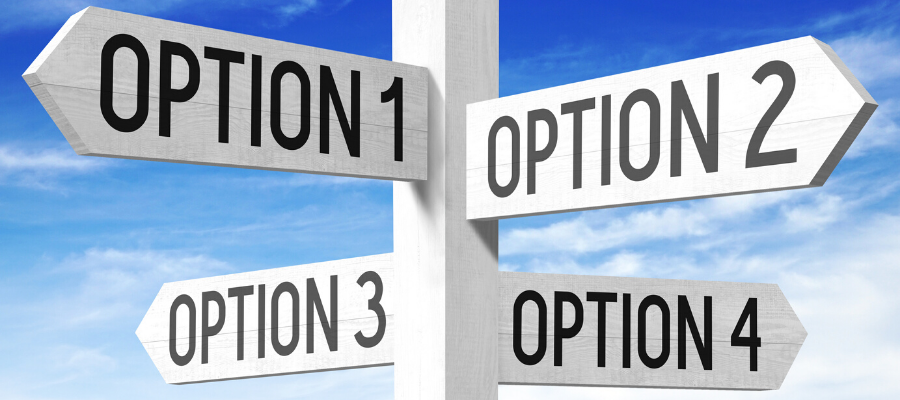The Psychology of Cruelty
14
Sep 2018
Are people cruel because they lack empathy? Is cruelty always a matter of seeing others as less than human? Or are there some who simply enjoy seeing people suffer? These are some of the questions we’ll be tackling in this week’s show. A popular theory is that something goes wrong with the empathy circuits in the brain of the cruel person. And that’s when you get violent or abusive behavior toward other people. This phenomenon is often described as empathy erosion. There may be many different causes of empathy erosion, and it could be a temporary state or a general tendency,...
Read moreExplanation at Its Best
30
Sep 2019
What makes an explanation a good explanation? Isn’t the simplest explanation always the best? Why do people often swallow crazy explanations? Those are just some of the questions we’re asking in this week’s episode about the nature of explanation. Let’s start with an innocent seeming question. Suppose we have two competing explanations of the same thing. How do we decide between them? One perfectly reasonable thought is that we should always start with the simpler one. But what justifies this thought? You might suspect that the simpler explanation is more likely to be true....
Read moreRawls on Justice
07
Jul 2010
One of the most influential political philosophers of the 20th century, John Rawls articulated a vision of a liberal state, focused on justice. His significant book was A Theory of Justice. Continuing the ideas of Locke and others, Rawls maintains the best way to think of the state is as the result of a social contract. Think of the beginning of the Declaration of Independence: We hold these truths to be self-evident, that all men are created equal, that they are endowed by their Creator with certain unalienable Rights, …. That to secure these rights,...
Read moreYour Comment: A World Without Work
09
Oct 2017
We're continuing to get some great responses to our recent show, A World Without Work, including this email from Paul R. Thanks, Paul, for your comments! If you have questions or comments on a show, feel free to send us an email at comments@philosophytalk.org and we might just feature it here on the blog. 1. Before you (or someone) decide how the world will work without work, you (or someone), need to decide how you are going to feed everybody. I was doing some reading a couple years ago in well-respected science, health, and geographical magazines--from one article I got basically how...
Read moreFlirting as a two-step dance
11
Aug 2007
Ah the glories of summer. Though lots has been happening behind the scenes at Philosophy Talk -- much of which you will hear about very soon -- not a lot has been happening on this blog of late. But now that our summer more or less hiatus draws to a close, we will be in the studio more often, producing more live shows. That should mean more blogging too. I can't honestly say that today's show is about an age-old philosophical question. In fact, as a philosophical topic, flrting is, like, so last second. As far as I can tell, it was put on the map by today's guest, Carrie Jenkins,...
Read moreIs Punishment Wrong?
02
Mar 2018
Is it ever morally okay to punish people? To punish someone is to hurt them because of a wrong they’ve already committed—whether or not any future benefit will come of that hurt. How could it be okay to deliberately hurt someone? In his article “Two Theories of Punishment,” John Rawls offers a justification for punishment based on the claim that its overall benefits outweigh its harms. Instead of punishing the guilty, we could try to mete out whatever harms and benefits would have the best consequences. This would sometimes involve harming the innocent (maybe it’s a great deterrent to torture...
Read moreNations and Borders
22
Jan 2016
What gives nations the right to control who can cross their borders? That’s the question we’re addressing in this week’s show. After all, in some sense we’re all citizens of this planet with an equal right to its bounty, so shouldn’t we all be able to live and work wherever we want? Strictly speaking, of course, people are citizens of nations, and nations determine who can come into their territory and what they can do once they get there. But those are just the facts. What we’re interested in is the normative question: Should nations be able to prevent anybody from...
Read moreDisorders of the Mind - The Philosophy of Psychiatry
07
Mar 2015
There’s something odd about how psychiatry defines mental disorders—namely, by their symptoms. It’s to be expected, on some level. After all, how else could doctors diagnose psychiatric disorders, if not, in part, by their symptoms? The problem, though, is that in medicine, a cluster of symptoms isn’t usually what defines the disorder. Illnesses are identified by the underlying condition that causes the symptoms. And for good reason. Imagine you come down with a fever, body aches, and vomiting—those are your symptoms. You go see a doctor, but before the doctor decides how to...
Read moreOn the Absence of Dogmatism
12
Mar 2005
During our episode on Religion and the Secular State Robert Audi claimed that some religions are non-dogmatic He might be right about that, I am not sure which ones he had in mind. On the other hand, John was pushing the line that many of our "secular" beliefs have pretty much the status and function of dogmatic religious beliefs. At least for some people, he might be right about that. I recall that at least one caller agreed with John's remark. I still insist that if we are to have a shared public life that reflects what ...
Read moreThe Philosophy of the Vienna Circle
22
May 2021
Is metaphysics just a bunch of nonsense? Is it okay to believe something you could never prove? Could logic be a solution to the world’s problems? This week on Philosophy Talk, we’re thinking about the Vienna Circle, a group of Austrian philosophers from the 1920s who debated these questions in an attempt to usher in a new era of scientifically grounded thinking. While the philosophers of the Vienna Circle (including Rudolf Carnap, Otto Neurath, and the circle’s central figure, Moritz Schlick) had plenty of disagreements, they agreed on some general principles: science and logic are...
Read moreWeird, Wild Stuff
25
Apr 2024
At first glance, the world we live in may not seem especially weird. In fact a lot of it is pretty predictable: the sun rises every morning, if I drop something it falls toward the Earth, and unless some jerk moves stuff around, things stay pretty much where I put them. And yet if you look a bit beyond such things, there’s a lot of weird stuff about the world too. For example, there are lizards that reproduce themselves by cloning. And sea squirts are even weirder: they start their lives as free-swimming larvae, but then they attach themselves to rocks, digest their own brains, and become a...
Read more[VIDEO] What Makes for a Good Life?
02
Jun 2017
It's one of philosophy's greatest and oldest questions: what makes for a good life? Regardless of what specific areas of philosophy we might be interested in, this question affects every one of us. So, how should we live our lives? Seeking pleasure? Knowledge? Self-actualization? Is there meaning to be found in this life? Must we create it ourselves? The stances we take on all of these questions have the potential to shape how we think and act everyday. This episode of Crash Course Philosophy examines a number of takes on this long-pondered question, including the views of Camus,...
Which Statues Should Go?
18
Aug 2017
A large hunk of metal in the shape of a human occupies a public space—maybe a park. Thousands of statues around the United States and world fit this description. Many depict people who have done hideously immoral things. Almost all depict morally imperfect people (with baby statues, perhaps, being the exception). It’s intuitive, I think, that some statues should be left in place and some should be torn down. This statue of Victor Hugo should stay, in order to commemorate the man and his great works; the Hitler statue whose remains are captured here, however, deserved destruction. But what...
Read moreWhat's on your summer reading list for 2014?
17
Apr 2014
Every year, we do a special program called the Summer Reading List. As we're preparing for this year's show, we want to know what YOU, our fans and listeners, are planning to read this year. Are there some new books you've been itching to get your hands on? Any old favorites you love to return to again and again? Are you more of a fiction or nonfiction type of reader? Do you have any recommendations for our philosophically-inclined audience? Share your thoughts with us here, and maybe we'll ask you to join John and Ken on the air to talk about what's on your list!
Read morePhilosophy and Everyday Life
27
Jul 2011
Sunday’s guest is Robert Rowland Smith, author if Breakfast with Socrates and Driving with Plato. These books explore how the sorts of events that happen to everyone can give rise to philosophical thoughts, provide examples of philosophical insights, and be enriched by considering those insights. From his picture, Smith looks to me like a young guy. I don’t know how he has lived long enough to read all the philosophers he discusses. He has really mastered a fascinating kind of essay. He takes an ordinary event, like taking a bath, and...
Read moreYour Question: Integrate or Assimilate?
20
Mar 2019
In response to our recent show "Immigration and Multiculturalism" with guest Prof. Sarah Song, listener Judy asked: First, I would like to have known what was meant by Dr. Song's comment that immigrants are obligated to integrate. What does integration mean, and how is that contrasted to assimilation? Second, I heard her say that immigrants' opinions have nothing to do with culture. What?? Did I hear wrong? If not, I don't get it because such opinions have everything to do with culture. Now, she said that something to the effect that immigrants deserve full participation in America, and that...
Read moreGame Theory and COVIDiocy
27
Mar 2020
Regular listener Susan L. from WA wrote to us with a very interesting question about game theory and COVID-19. She says: I have recently been thinking about how to solve this problem (how to stop the President from interfering with the pandemic resolution, which could kill more people). It occurred to me that if one could discover a pattern in his behavior, and then create a disruption to the pattern, his actions might be stopped. That made me think of Game Theory, but I don't really know that much about it. I'm writing to you as experts... Well I'm no expert on game theory, but it...
Read moreInside Money: The Shadow Banking System
28
Mar 2009
Posted by Alex Gould Hi Everyone, Thanks again to John and Ken for having me on the show today and to the whole team (Ben, Devon, Daniel, et. al.) for their organization and professionalism. MAJOR NOTE: I am an Instructor in the Department of Economics at Stanford University, NOT at the GSB (Graduate School of Business) at Stanford. Given the flow of the show, I didn't feel that it was appropriate to make the correction on the air as it would have been disruptive. BUT, I am making it now. :) I'm sorry we only had part of an hour to talk about the mysteries of...
Read moreThe Puzzle of Possibility
10
Jan 2018
Happy New Year! Now that we’ve launched into 2018, many of us are wondering what the year ahead has in store. What might happen, to you, your loved ones, the nation or the world as a whole? There seem to be a lot of possibilities, some to be hoped for and others to be feared. Philosophers are as much concerned about the possibilities that lie ahead as anyone else is. But philosophers are also interested in possibilities for a different reason—or rather, in a different way. When we consider possibilities, most of us are curious about what is possible, but a...
Read moreHappy 200th, Karl Marx!
05
May 2018
It's Karl Marx' 200th Birthday! It is hard to deny that Marx left a lasting, far-reaching impact on the course of history. But how exactly can we distill the core insights of Marx's teachings? Are we to emphasize it his concrete philosophical positions or his contributions to political history around the world? This wonderful New York Times tribute to Marx highlights and praises the philosopher's critical posture towards capitalism and oppressive structures. Marx's pragmatic, critical attitude is brought to bear on our instituions regularly in our society. Here's the...
Read moreThe Morality of Revenge
07
Jul 2016
We’ve all experienced the desire for revenge, whether it be when some jerk cuts you off in traffic or you discover that your partner has been cheating on you. Wanting revenge when you’ve been wronged is a natural human response. The question we’re asking this week is whether this desire for payback is something we ought to act on. Is revenge ever the moral thing to do? When we’re motivated to seek revenge, it’s often out of a sense of fairness. If an injustice has been committed, then the only way to restore balance in the moral universe is if the wrongdoers pay for what they’ve done....
Read moreAre Some People Better than Others?
19
Aug 2015
Are some people better than others? You might wonder what kind of a question that is. On the one hand, there’s no controversy—some people are smarter than others, some are more creative, some are stronger or faster, and some are kinder or more virtuous. So, if that’s all we’re asking, the answer is obvious. In certain respects and in particular domains, some people are clearly better than others. But if we’re asking whether some people are just better human beings in general, it becomes much harder to answer the question. Looking back through history, it’s easy to identify the...
Read moreNegotiating Identities: The Crash Solution
14
Jun 2005
Thanks very much to Anthony Appiah for being our guest on the show last week. You can check out the episode here. I meant to be blogging about this one awhile back, but the rest of my life intruded, unfortunately. I'm about to head off to Australia for seven weeks, where I'll be a visiting fellow at the Australian National University. I'll actually do three of the shows from down under. That's going to be tough. I'll have to be in a studio there at 4.00 AM. Now that is dedication. But back to the topic...
Read moreConfessions of a Cassandra
31
Jan 2017
This essay is a lot more personal than any of my previous postings on this blog—or, indeed, any my writing anywhere else. It’s personal because it concerns a topic that is so important to me that I cannot bear to shroud it in a pretense of academic detachment and so overwhelmingly significant that the thought of writing about anything else seems grotesque. On June16, 2015 Donald Trump descended the escalator to the lobby of his eponymous tower to announce that he was throwing his hat into the presidential ring. This announcement was the source of great amusement among my...
Read moreKant on Lying to Robots, Part II
10
Aug 2020
About two months ago, I posed a philosophical puzzle (as I’ve been doing during the Corona crisis) that had to do with whether it’s morally acceptable to lie to robots. My puzzle was addressed at Immanuel Kant’s moral philosophy, which seems to say that lying is always wrong (and under the right interpretation—there’s the rub—it does say that). The puzzle was this: if lying is always wrong (for Kant), would it be wrong (according to Kant’s theory) to lie to a robot with speech technology who came to your door trying to locate innocent people who were hiding from a tyrannical...
Read more




















